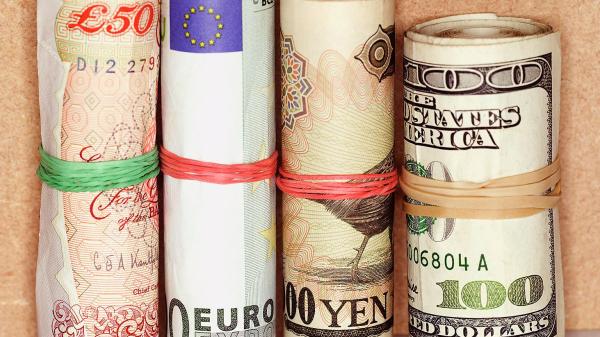Playing the currency markets, a sport for the brave
Suddenly sterling is strengthening, but more volatility lies ahead. Here’s how to win the game by spreading your risk

The pound soared against the euro and gained against the dollar in the wake of Donald Trump’s election victory. It was a sign that the markets had, once again, priced in a contrary result. While not as dramatic as the pound’s fall when Britain voted to leave the EU, it does reinforce that there is nothing as reliable as the unreliability of currency markets.
Chris Towner, the managing director of HiFM, a foreign exchange advisory, says: “The average volatility of the dollar to pound is about 12 per cent in a year. On the day of the Brexit vote the pound slid from $1.50 to $1.32 — a year’s volatility in a day. By contrast, sterling has been the best-performing currency this week, up 2.5 per cent against the dollar and 5 per cent against the euro in 48 hours.
“This volatility is the new normal; the world is moving from event risk to event risk,” Mr Towner says. “Next we will have the French elections and the German elections. The biggest movement I have seen was in 2008, the credit crunch, when the pound lost 25 per cent. The last equivalent was when the Swiss franc unpegged [from the euro] in 2015 and the pound crashed 30 per cent in minutes.
When you think about when sterling came out of the ERM [European exchange rate mechanism in 1992] it didn’t have a massive impact globally.
“I think markets are now much more globally connected,” he says.
So how does today’s global citizen, who might live in London, regularly travel to New York for business and have a holiday home in the Côte d’Azur, manage the vagaries of the market?
You could bet on events such as the US election or EU referendum, but that is a high-risk approach.
We would recommend your forex composition reflects your lifestyle and is in proportion to your spending
Iain Tait, a partner at London & Capital, a wealth management company, says: “You need a strong view and a strong stomach. The differing distribution of outcomes forecast for the US election alone shows how binary the foreign exchange markets can be. We didn’t take a currency position on the US election — a lot of people thought a Trump win would be negative for the dollar, but actually his speech was conciliatory enough and the dollar remained fairly stable.”
Exposure to different currencies in your portfolio makes sense, especially if you regularly earn or spend in different countries, in which case it is a good idea to have cash available in a multi-currency account or in different currency accounts. “We would recommend your forex composition reflects your lifestyle and is in proportion to your spending, whether it be for business travel, holidays or paying a mortgage on a second home, but if you opt for a multi-currency account, be aware of the bank charges — they can be quite steep,” says Mr Tait.
Jane Sydenham, an investment director at Rathbones, an investment management company, says: “The main thing is to match your liabilities with income in the same currency. If you are going to spend half the year in Europe and half in the UK — or have a euro mortgage on a property — you need to make sure you are earning in euros too, either in rental income from a European property or in euro-denominated funds or bonds. Otherwise you are speculating on the currencies whether you realise it or not.
“We had a client who had a Swiss franc mortgage against a sterling property; that was very painful when the franc unpegged. Matching is the most important advice I give clients, but it is surprising how often people forget it.”
The timing of currency exchanges for large purchases also needs to be strategic. Alan Higgins, the chief investment officer at Coutts, the private bank, says: “Our Middle East clients have been buying into sterling because it is undervalued. If they are planning to buy property here one day, even if it is in three years’ time, then transferring money now makes sense. If you have money in sterling, it is more difficult. If you plan to buy a house in euros in six months’ time, you might need to start now, but trade slowly to get the best rate rather than leave it to the day before you exchange.”
You can buy currency in advance (with a 5 per cent deposit) to fix the rate, or leave an order for currency to be purchased when it reaches a predetermined exchange rate.
Mr Tait also advises that if you don’t need immediate access to your money you could opt for an investment account where either you or your wealth manager use currency fluctuations over the medium term (18 to 24 months) to generate a set return.
All commentators believe that sterling is undervalued against the dollar, but few think a rebound is imminent.








